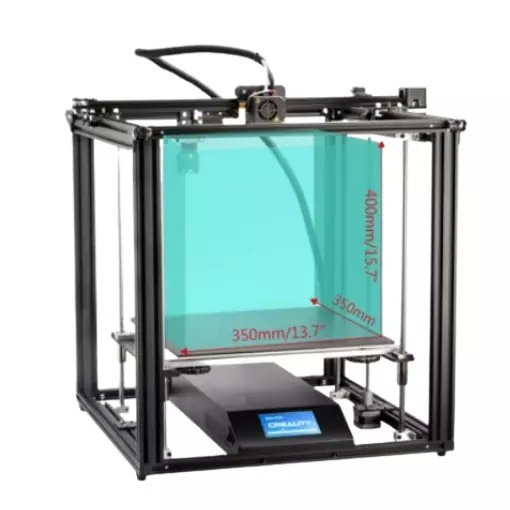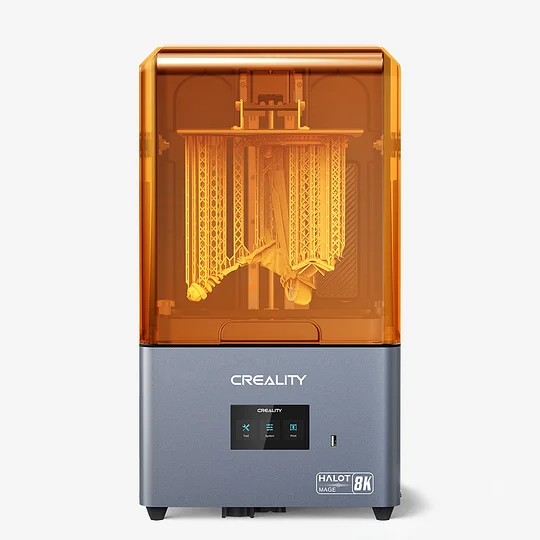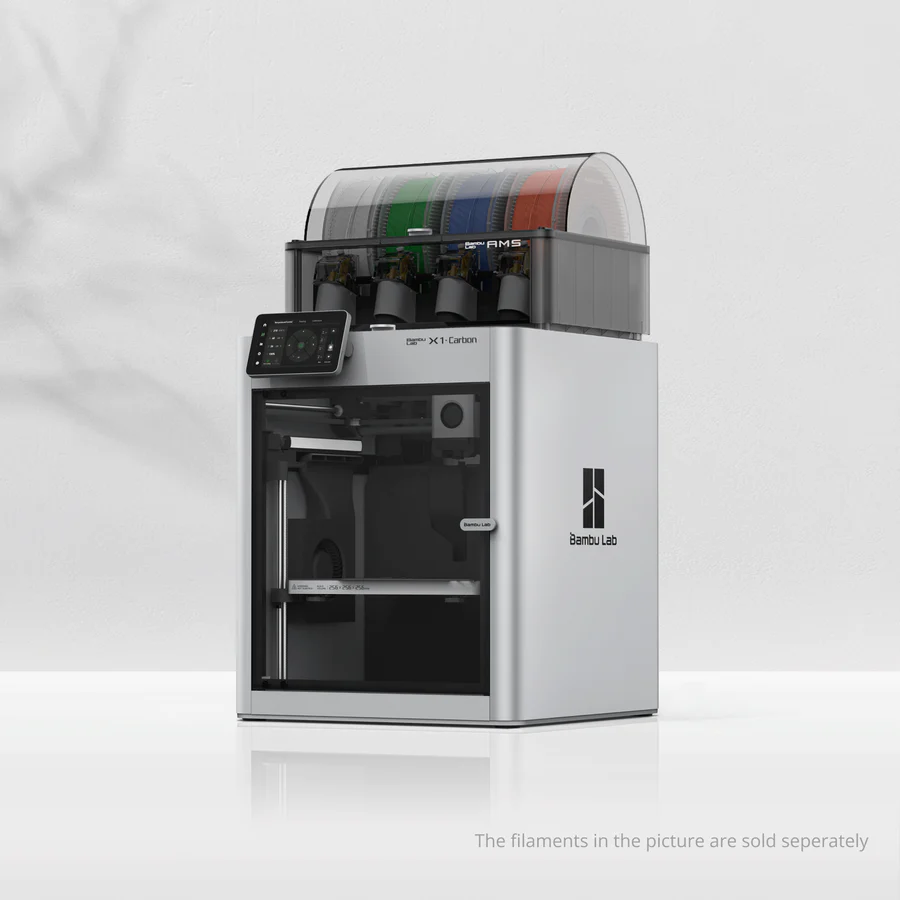Compare Ender 5 Plus vs Halot Mage vs X1 carbon
Comparison between the best 3D printers
Choose the best 3D printer at the best price. The cheapest 3D printers are here.
Buy a 3D printer here with 3D Fila.
 |
 |
 |
|
| Model | Ender 5 Plus[BUY Ender 5 Plus] |
Halot Mage |
X1 carbon |
| Printing Material | Filament | Resin | Filament |
| Estimated price | $599,00 | $399,00 | $1449,00 |
| Fabricante | Creality 3D | Creality 3D | Bambu Lab |
| Release Year | 2019 | 2023 | 2023 |
| Print Volume [mm] | 350x350x400 | 228x128x230 | 256x256x256 |
| Printer Size [mm] | 632x619x666 | 333x270x608 | 389x389x457 |
| Weight [kg] | 18,2 | 12 | 14,13 |
| Power Loss Recovery | YES | NO | YES |
| Maximum Resolution [mm] | 0,1 | 0,01 | 0,1 |
| Processor | 32 bits | Quad ARM A7 1.2 GHz | |
| Display | Touchscreen TFT 4,3'' | Display touchscreen 4,3'' | Touchscreen 5'' |
| Power Supply | 24V / 504W | 100 W | 350 W |
| Connectivity | SD / USB | USB | Wifi, Bambu bus, Cartão SD |
| Operating systems | Windows, Mac, Linux | Windows, Mac, Linux | Windows, Linux, Macbook |
| Date of registration in the system | 2021-04-14 | 2023-05-23 | 2024-04-10 |
| Release date | 2019 | 2023 | 2023 |
| Extra features | The Ender 5 Plus offers a large print volume (350x350x400 mm) and fast assembly. It includes a BLTouch sensor, but with range limitations. It stands out for its dimensional accuracy, although it requires adjustments to the slicer settings. Despite the noise, its integrated design saves space, and includes features such as a filament sensor and power resumption. Ideal for large projects, it requires refinement in the settings for high-quality prints. | The Halot Mage stands out with its easy-to-operate, space-saving MageArch hinged lid that filters 99.89% of UV light. It includes an integrated air purifier with a large, efficient activated carbon filter that is ideal for absorbing resin odors. Its ultra-stable Z-axis with dual linear rails ensures larger, more accurate prints with minimal wobble. Plus, it features a robust tempered glass LCD protector for durability and protection against impacts and resin spills. | The Bambu Lab X1 Carbon revolutionizes 3D printing with stunning design, high print speeds, and a streamlined user experience. It stands out with its CoreXY system, a hotend capable of reaching 300°C, allowing for a wide range of filaments. Its LiDAR-assisted bed leveling system, vibration compensation, and AMS multicolor printing capability raise the industry standard. Print quality is impressive, with the ability to fine-tune for perfection. The X1 Carbon, with its closed build volume, not only promises but also delivers one of the most advanced 3D printing experiences available to consumers. |
| Support for multiple colors and materials (AMS and CFS) | NO | NO | YES |
Notes * |
|||
| Cost-benefit | 6 / 10 | 8 / 10 | 7 / 10 |
| Hardware | 2 / 10 | 4 / 10 | 6.4 / 10 |
| Screen | . | . | . |
| Print volume | 4 / 10 | 3 / 10 | 4 / 10 |
| Performance | 1 / 10 | 9 / 10 | 4 / 10 |
| [BUY Ender 5 Plus] |
Conclusion |
| In comparing the Ender 5 Plus, Halot Mage, and Bambu Lab X1 Carbon, several key factors come to light that can help potential buyers determine the best 3D printer for their needs. The **Ender 5 Plus** offers a commendable print volume and features such as power loss recovery and a filament sensor. However, it may require more user intervention through slicer adjustments and is less user-friendly compared to others, as indicated by its lower performance and cost-benefit ratings. The **Halot Mage** stands out for its convenience and ease of use with a compact design and integrated air purification system, making it a great choice for smaller spaces. It provides a good balance between affordability and performance, despite its smaller print volume. Its score reflects its straightforward operation and recent release, which positions it as a user-friendly option for both newcomers and those needing reliable performance. On the other hand, the **Bambu Lab X1 Carbon** is designed for high performance with advanced features like LiDAR-assisted bed leveling and support for multiple colors and materials. While it comes at a higher price point, its robust capabilities and impressive print quality may justify the investment for professionals or serious hobbyists. However, its cost-benefit ratio indicates it may not appeal as much to budget-conscious buyers. In conclusion, the **Halot Mage** presents the best balance of cost and usability for consumers seeking thoughtful design and simplicity, while the **Bambu Lab X1 Carbon** excels in features for those willing to invest in cutting-edge technology. The **Ender 5 Plus**, though a solid contender, falls slightly short of the competition in terms of ease of use and performance. Buyers should weigh their priorities carefully—whether that be print volume, advanced features, or overall ease of use—to make the best decision based on their specific 3D printing needs. |

